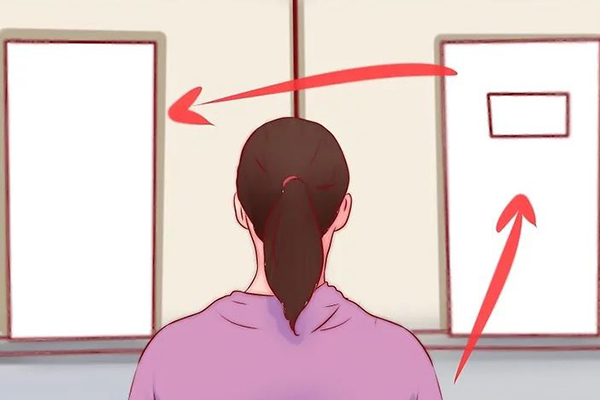In a piece that appeared in Overland online just after the Victorian election, Annie Toller described the emergence of the Victorian Socialists as a political force in Melbourne. The author made a compelling argument that the impressive campaigning force mobilised by the newly formed political party correlates with the decline of the Victorian Greens, who suffered significant losses at the election. ‘(It) is likely,’ Toller concluded, ‘that disillusioned Greens will begin defecting to the socialists,’ going on to note that she followed this trajectory herself. Former state government Labor minister Carlo Carli made a similar point in a radio interview after the election, noting that the Greens had formerly inspired large amounts of young people to become politically active, but that they were surprised by the Victorian Socialists this time around.
To this point, it is difficult to take issue with the article. Several of my own comrades and friends from the trade union movement and other leftist circles have made the same transition. The switch from the Greens to the Victorian Socialists represents an encouraging materialist turn – it would be very hard to call Victorian Socialists lead candidate Steve Jolly a ‘Tree Tory’, a moniker that so neatly describes Greens leader Di Natale – but there remain reasons to be critical of the new party. In part, my scepticism stems from the same source as Toller’s optimism: many people involved with the new political party are people who were convinced of the Greens a few years ago. Victorian Socialists appear to appeal to the same people for similar reasons. Toller’s claim that ‘the party stands for bottom-up democracy’ chimes a similar note to the claims made by my Green friends five and ten years ago that the Greens ‘do politics differently.’
As a socialist and a member of the ALP, I have always argued that radicals in the ALP can work to put socialists in the cabinet, rather than on the cross benches of the upper house. Now, living in Wales, I have seen what radicals within the Labour Party can achieve. The Welsh Labour Party is likely in the process of electing Mark Drakeford as our parliamentary leader, and, in turn, Welsh first minister. Drakeford, a close comrade of Jeremy Corbyn’s, has run on a platform of twenty-first century socialism, advocating radical economic and social change. This follows the radicalisation of the British Labour Party more broadly, which has granted Corbyn, John McDonnel, Dianne Abbott and others a real chance of occupying the government benches at Westminster in the coming years. These Labour governments would sweep to power on platforms of widespread nationalisations, the radical redistribution of wealth and nothing less than the promise to dismantle British capitalism itself.
Of course, nobody could argue that the Daniel Andrews Government in Victoria is a radical one (despite some conservatives trying). His government has made worthwhile investments in public transport infrastructure, regulated contract work, given significant and overdue pay rises to public sector workers, and provided staunch support for LGBTQI+ rights. Even more encouragingly, the Party ran on a platform of providing free dental care to public school students, criminalising wage theft and industrial manslaughter, and largely refused to play the law-and-order game with Liberal leader Matthew Guy on the fictitious ‘African gangs’. But the ALP has treated some of its own trade union affiliates poorly, engaged in stealth privatisation, and failed to confront the interests of capital in areas including the environment and urban development.
But whatever view we form of the Victorian Government overall, there is little argument that its best tendencies can be directly attributed, not to the politicians who sit in Spring St, but to the persistence and determination of radical trade union affiliates and progressive rank-and-file members who are working to push the party to the left. The prospects of a Corbyn-style revolution in the ALP are obviously a long way off. But this strategy retains the best chance of putting socialists in decision-making positions, rather than in glorified activist roles on the cross benches.
The Victorian Socialists run the risk of becoming a new, slightly more radical, Green party: another project for leftists more interested in signalling radicalism than the often-unpleasant and messy business of gaining and exercising power. In this sense, those making the switch from the Greens to the Socialists show themselves to be rebels, rather than radicals. Rebels secretly want to remain in opposition, as it allows them to continue to criticise those who exercise power without ever wielding it themselves. Radicals, like the socialists on the rise in the Welsh and British Labour Parties, prioritise making economic and social change, rather than posturing or engaging in left-wing one-upmanship. Tellor notes how many Green members are leaving the party in frustration as they discover that the party did not, in fact, ‘do politics differently’ after all. It is not difficult to imagine the same people making a new transition from the Victorian Socialists to another left group occupying a few cross-bench seats ten years from now.
To paraphrase the late radical Tony Benn, the Labor Party has never been a socialist party, but it has always been a party with socialists in it. The choice for socialists in Australia today appears to be between Corbyn-style organising within the labour movement or bouncing from minor party to minor party without ever coming close to the levers of power.






